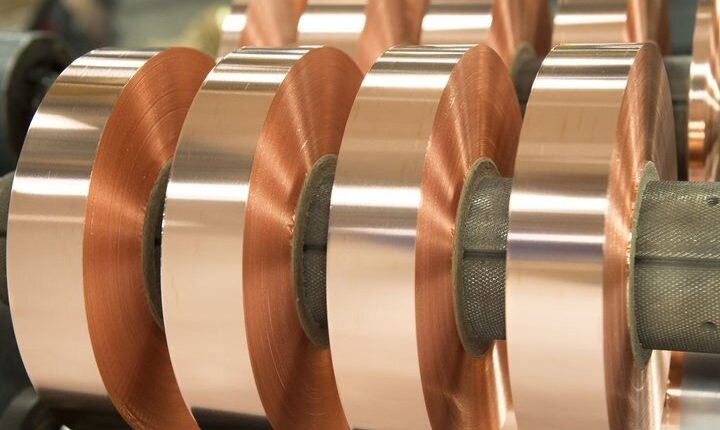4-month copper anode output reaches 121,200 tons

TEHRAN- Production of the copper anode in Iran hit 121,202 tons during the first four months of the current Iranian calendar year (March 20-July 21), indicating a three percent rise compared to the output in the same period of time in the past year, IRNA reported.
As reported, Sarcheshmeh Copper Investment Company in the southeastern Kerman province accounted for the lion’s share of the production during the mentioned time span. The company produced 79,083 tons of copper anode.
By producing 41, 371 tons of the product, Khatoon Abad Copper Complex, located in Kerman as well, registered the highest amount of production growth, which was four percent, in the first four months of the year.
In early May, four development projects worth 40 trillion rials (about $952.3 million) were inaugurated in the copper sector of Kerman Province.
President Hassan Rouhani put the projects into operation through video conference.
The projects inaugurated in Khatoon Abad Copper Complex included increasing the capacity of copper smelting in the complex, building a copper concentrate storage, construction of a sulfuric acid production plant, and an oxygen supplying unit.
Iranian Mines and Mining Industries Development and Renovation Organization (IMIDRO)’s Managing Director Khodadad Gharibpour was present in the inaugural ceremony of the projects.
By putting the first project into operation, the complex’s capacity for producing copper anode rises by 50 percent to 120,000 tons, and the country’s copper smelting capacity rose to 400,000 tons. This project creates jobs for 120 persons.
Some 1.11 trillion rials (about $26.4 million) plus $118 million have been invested for this project.
The second project, which was the construction of a 60,000-ton storage facility, was implemented at the cost of 158 billion rials (about $3.7 million) plus three million euros, creating jobs for 250 people.
The third project is valued at 750 billion rials (about $17.8 million) plus 100 million euros and the fourth one was put into operation at the cost of 192 billion rials (about $4.5 million) plus 31 million euros.
Iran has seen its copper exports doubled in the past Iranian calendar year (ended on March 19) despite a series of bitter sanctions imposed by the United States aimed at hampering the Islamic Republic’s trade of lucrative metals.
A senior official at IMIDRO, Iran’s largest metals and mining holding, has said that the value of exports for main copper products reached more than $1 billion over the past year.
Mohammad Aqajanlou said that total sales of the National Iranian Copper Industry Company (NICICO) topped 220 trillion rials (about $5.2 billion), a milestone in the 48-year-history of the company.
Aqajanlou added that total turnover for the Iranian copper industry exceeded $4.5 billion over the past year and the NICICO posted a return on investment of 143 percent.
He said another historic achievement for the copper smelters in Iran was to reach a total output of 1.18 million metric tons of concentrate last year while production for copper cathode reached an all-time high of 250,130 tons.
He said that copper cathode accounted for more than two thirds of total domestic consumption for purified copper which was over 160,000 tons over the past year.
That means that copper concentrate, a relatively raw from of the metal, accounted for a bulk of Iran’s exports, an issue which has faced criticism with many believing the NICICO should create more capacity for using copper concentrate inside Iran rather than shipping it in large quantities to countries like China.
Aqajanlou rejected the criticism and said the current supply and demand situation in the Iranian copper industry makes exports of concentrates more preferable.
Some experts also believe that rising exports for raw copper at a time of increased American bans on Iran’s trade of lucrative metals could also help the government access new hard currency resources.
The United States imposed its extensive sanctions on Iran’s metals industry in May 2019, exactly a year after it withdrew from an international agreement on Iran’s nuclear program and prepared its tough sanctions on the country’s sale of crude.
MA/MA
Leave a Comment